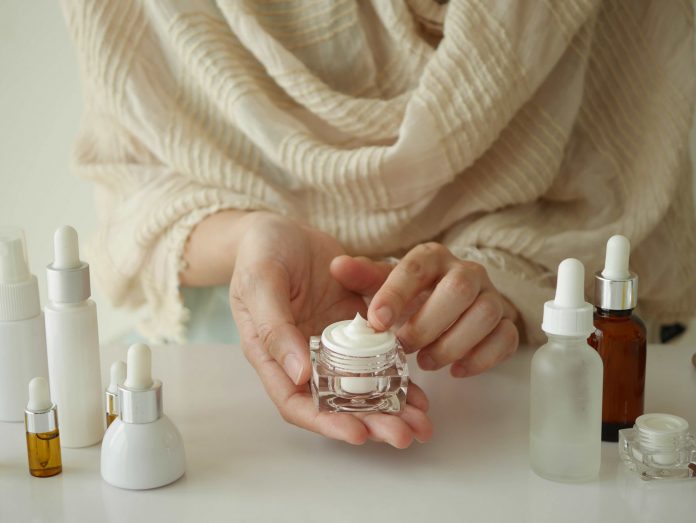As the weather gets cooler, extra care for our skin is needed. Cold dry air outside and hot air inside can disrupt the skin’s barrier.[1]
According to dermatologist Isabella Loneragan, reduced thirst and water intake can also contribute to skin issues in winter.
People who work in occupations where they need to wash their hands often are also prone to skin issues during winter, says Associate Professor Stephen Shumack from the Australasian College of Dermatologists.
All these factors can cause some people to experience dry, itchy skin.
Dry weather can also exacerbate symptoms for people who have inflammatory skin conditions, such as eczema, psoriasis, dry skin and rosacea.
“The skin is already lacking in natural moisturising factors, therefore the ability to protect itself from further drying out from weather and internal heating is lacking,” Ms Loneragan said.
Another group susceptible to developing skin issues in winter is the elderly.
“Our ability to produce sebum, a natural moisturising factor, reduces as we age,” Ms Loneragan said. “A lack of sebum is one of the major issues in skin conditions like psoriasis and eczema.
Steps to manage winter skin
- Nutrition
Dr Abbie Cloherty, a traditional Chinese medicine practitioner, points to omega-3 fatty acids such as EPA and DHA oils, and vitamin E as being beneficial for skin health and quality, with collagen, vitamin C and zinc also good for skin health as well as repair.
- Choosing products
The American Academy of Dermatology (AAD) and Professor Shumack provide the following tips for those choosing products for the skin during winter:
Cleansers. Choose facial cleansers labelled ‘gentle’ or ‘moisturising’, while avoiding products that contain alcohol, which can dry the skin.
For the body, the ideal formula is a creamier one, whether in a liquid, gel, or mousse. Using products with the ‘fragrance-free’ label on them is also advised.
For those with eczema, product ingredients such as silicones, shea butter or petrolatum are recommended. Professor Shumack suggests using handwashes that are labelled ‘gentle’ or ‘for sensitive skin’.
He also advises that hot water should be used sparingly in winter when cleaning the body, hands or face.
Moisturisers. For the face, the AAD and Professor Shumack suggest creams, balms and oils, particularly those containing hyaluronic acid and/or jojoba oil.
For the body, Professor Shumack says the key is to choose creams of a thicker formulation. The AAD advises choosing creams or ointments that come in a tube or a tub, as these thicker formulations have more moisture than those in pump bottles.
Their tips include applying moisturiser to the body just after a shower or bath while the skin is still damp, as the moisturiser seals existing moisture in the skin.
They note that hyaluronic acid is great for the body and the face, an ingredient they report absorbs 1000 times its weight in water.
Other ingredients they suggest can help with dry skin are shea butter, petrolatum, mineral oil, glycerin, lanolin and mineral oil.
The AAD recommends not using the same moisturiser for the face and skin, as facial moisturisers are designed to be thinner for facial skin, which can be thinner and more sensitive.
Ms Loneragan also advises that using only those products free from fragrance or colours will reduce flare-ups.
Sunscreen. The AAD states that sunscreen should be applied all year round, not just in summer, and on all uncovered areas, including the neck, ears and hands.
It’s recommended that when choosing sunscreen products, the more moisturising ones should be favoured, which are the creams, rather than lotions or sprays.
Alternatively, sunscreen can be applied on top of the moisturiser.
Reference:
This feature was originally published in the May issue of Retail Pharmacy magazine.








